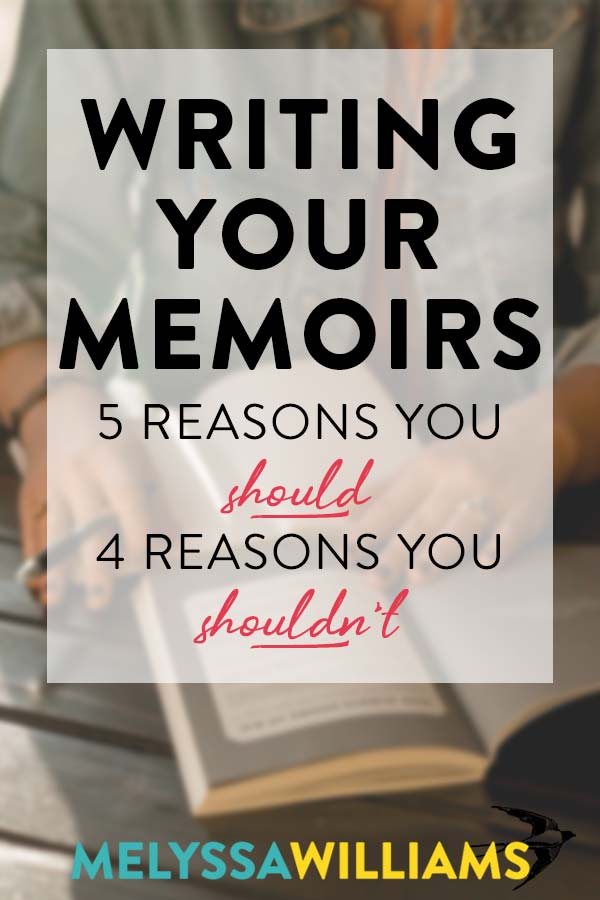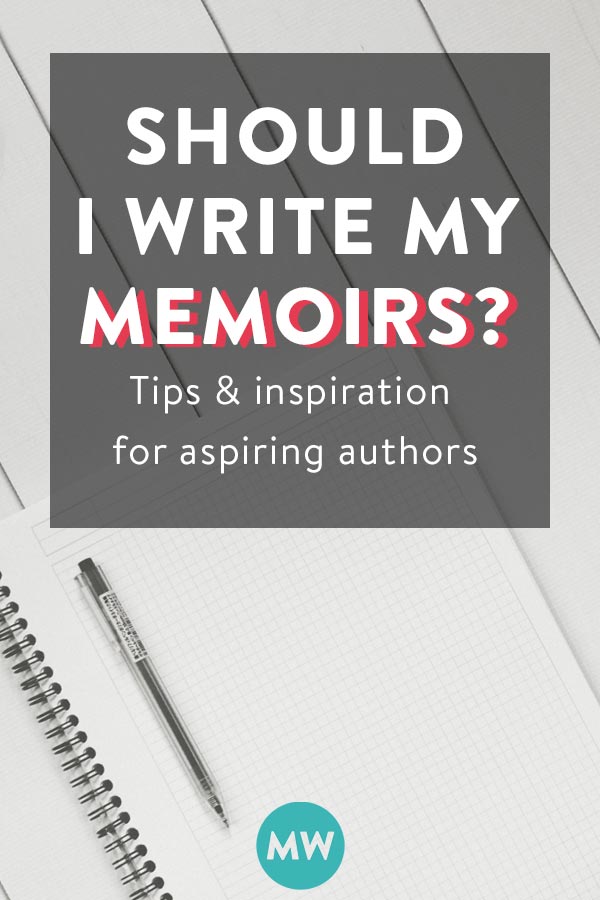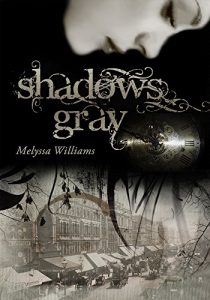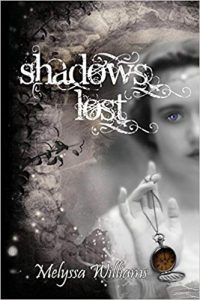According to Savi Sharma,
Everyone has a story to tell.
That may be true, but do you worry if your story is interesting enough to read?
Please note that this post contains affiliate links, which means that if you purchase something you see on our site we may receive a commission at no cost to you. Read our full disclosure here.
Should I Write My Memoirs?
You don’t need to have led the world’s most compelling life to have a backstory worth reading. While it certainly helps if you left home to join the circus at age 15, fought in a major war, grew up through extreme adversity, were one of 23 children, had a famous parent, trained lions, backpacked around the world, or were once a world class concert cello player, you don’t have to have done any of that to have a tale worth telling.
Read on for:
- 5 reasons to write your memoirs
- 4 reasons to NOT write your memoirs
- How to start writing your memoirs, and
- 19 great memoirs of all types that will inspire you to write your own
Please note that this post contains affiliate links for the books I recommend. This means that, at no cost to you, I may get a small commission if you buy something after clicking on one of the links.
5 Reasons to Write Your Memoirs
You may be the perfect candidate for writing your own memoir/autobiography if you:
- Have an excellent memory of your childhood, complete with photographs, historical information to back up your claims, family members who can corroborate you, and feel you have enough of all of those to fill a book.
- Have some sort of niche or theme in your story. Whether it be growing up homeschooled in the 1980s, having a baby while still in high school, living off the grid with your parents, or even just having the most normal suburban childhood ever, figure out what made you YOU and exploit it.
- Feel a compulsive need to tell your story. Whether it be therapy or the desire to leave your legacy to your grandchildren before you go, if your heart is telling you to write it, write it. Now whether you publish it … well, that’s another kettle of fish.
- Know that people need to hear it. Whether because what you went through was shocking (child abuse), inspiring (beating cancer), dangerous (attempting suicide), or whathaveyou (becoming the world champion hot dog eater), if you know in your soul that your memoir will help someone else in that boat, then that’s an excellent reason to write it.
4 Reasons to Not Write Your Memoirs
On the other hand, you may want to reconsider writing your memoir (at least for publication) if:
- There are living persons in your life who would be irreparably damaged if you told the world their part in your story.
You own everything that happened to you. Tell your stories. If people wanted you to write warmly about them, they should have behaved better.
~ Anne Lammot
While true, it may not be an easy pill to swallow and requires careful consideration. Hurt feelings can be the least of your problem if you publish your memoir: are you willing to destroy reputations and/or friendships?
- Your life story is quite dull, peppered with a couple of entertaining anecdotes. No, you don’t have to have led a life like Evil Knievel, but if a few short bursts are the only parts worth telling, consider writing those as a stand-alone story instead of a full-length novel.
- You value privacy. It may go without saying, but writing your memoir will be at times cathartic, and at times therapeutic, but are you ready for the world to know everything about you? Salacious details? Personal information? Private thoughts? Remember, there may be (should be) book signings and readings to attend, fan mail to answer, and friends and family to warn.
- You feel you have to (or desperately want to) make up some parts. Whether it’s due to a faulty memory or just feeling the need to jazz things up, you can’t do that when writing a memoir. What you need in that case is a novel based on your life story, but not a memoir. Changing up facts will get you into trouble. Sure, switching names to protect privacy is okay, but claiming you spent two years at a boarding school in Spain when you really went to public school in Topeka can be easily fact-checked and will come back around to bite you.
How to Begin Writing Your Memoirs
If you’re ready to go, here are some ways to get started before you begin the writing process:
- Talk to your family members. Get permission. If you can’t get permission, get their blessing. If you can’t get their blessing, revisit if you’re truly committed to this.
- If your family is on board, gather as many stories as you can. Compare your mental “notes” with theirs. Everyone remembers a story differently. Sometimes the differences are moot, sometimes they’re quite surprising. If one of your main points in your memoir is something that everyone saw and remembers differently, you’ll need to be honest about it in your book (perhaps in the footnotes or the afterward).
- Record your family members, interview style. Be organized, and you’ll have their words at your fingertips when you’re finally ready to write that particular chapter.
- Go through photo albums. A good memoir is good without photographs, but even better with them.
- Decide whether you will write it in a linear timeline fashion, or as separate anecdotal snippets.
- Begin gathering your target audience. If you memoir will focus on your recovery from an auto accident that took the use of your legs, or your years spent at culinary school in France, start integrating yourself into the groups of people that will want to read your words. Make friendships and business partnerships now, and you’ll have less to do when your book is finished. They’ll have been waiting for it.
- Gather beta-readers whom you can trust explicitly. This is important in any novel writing, but it will be imperative in your memoir. This will be a vulnerable, vein-opening process: you need readers who will be honest, but also sensitive.
If you’re excited to write your memoir, then I’m excited to read it. Tell me a story.
Inspiration: My favorite memoirs
Because reading other human being’s memories can trigger yours, inspire you, make you recall similar instances, and just plain help you realize that you do have something worth saying after all. Read. Then write.
The Glass Castle

by Jeanette Walls
I’ve read this no less than four times; it’s that good. Walls has an uncanny ability to make you love her parents, even through their abuse and neglect. The movie wasn’t half bad either.
A Girl Named Zippy

by Haven Kimmel
Hilarious, wry, witty … If you grew up in a small town, you’ll wax nostalgic and want to read it twice.
Driving With Dead People

by Monica Holloway
She had me at the title alone (named for her hearse driving, morgue employee father). I wished for more of the ‘driving with dead people’ angle: there isn’t much, especially towards the last third, which is all sexual abuse and suicide. Her eccentricities were what made her lovable and likable and without those, it became very hard to read. Trigger warning for graphic sexuality, abuse, and language.
She Got Up Off the Couch

by Haven Kimmel
Taking up where A Girl Named Zippy left off (see above), this one focuses on Zippy (Haven Kimmel)’s mom, who finally – you guessed it – got up off the couch.
Boy / Going Solo

by Roald Dahl
This, and the follow-up, Going Solo, makes you realize you could live to be 100 and you’d never be as interesting as Roald Dahl was by the time he was a teenager.
Educated

by Tara Westover
The memoirs of a girl raised in remote Idaho, not so long ago, to a cult-like family who abused the term “homeschooling,” and how she got out and became educated after all.
Brain on Fire

by Susannah Cahalan
Cahalan’s “month of madness” is a gripping memoir of a rare disease that attacked her brain. Most compelling to me was her parents and boyfriend, who stood by with unwavering support, even in her darkest and most frightening days.
Breaking Free

by Rachel Jeffs
Don’t start it unless you have a whole afternoon to dedicate to it; you won’t want to put this story down.
The Sound of Gravel

by Ruth Wariner
I got a little obsessed with memoirs concerning girls who grew up in cults … ahem. This one is crazy good.
The Polygamist’s Daughter

by Anna LeBaron
LeBaron is actually related to Ruth Wariner (above), which makes sense when men have upteen wives and children. Eye-opening accounts of the strange, nomadic lives the women and kids lead when hiding from the authorities to protect their polygamist husbands.
Moonlight on Linoleum

by Terry Helwig
It’s dark but not depressing, thanks to Terry, who is a lovable and fierce heroine of her own story. The pictures drawn of her and her sisters and her mother and fathers is realistic and well done. I cried at the end, not gonna lie.
You’re Never Weird on the Internet

by Felicia Day
Having both been homeschooled ‘back in the day,’ the beginning parts of the novel where she focused on those years, was hysterical to me and right on the money. We were very similar weirdos as children and adolescents, right down to the diary entries (no joke, my diaries look exactly the same and were filled with the same dorky “I’m talking to you” paragraphs) and the social awkwardness, and the starting of college early (and being woefully unprepared).
The Liar’s Club

by Mary Karr
All in all, a fantastically written book by a woman I’d love to know, but not for the faint of heart.
Let’s Pretend This Never Happened

by Jenny Lawson
I laughed so hard I had a snorting fit. What else can I say?
Girl at the End of the World

by Elizabeth Esther
‘A story of mind control, the Apocalypse, and modest attire.’ I love E.E. She is true and honest and a mess most of the time.
Bossypants

by Tina Fey
I expected funny. I didn’t expect, and was happily surprised, the clever, educated, smart, and even beautiful words that Fey penned.
Anne Frank: the Diary of a Young Girl

by Anne Frank
It doesn’t get more real than the pages of this classic diary.
I Know Why the Caged Bird Sings

by Maya Angelou
Dramatic and beautiful, in a dark and gritty way.
Blood, Bones, and Butter

by Gabrielle Hamilton
Anthony Bourdain: “Magnificent. Simply the best memoir by a chef ever. Ever.” Who are we to argue with Bourdain?
PIN IT






Barbara Brennan says:
Thank you so much for this! I am inspired. How did you know to write it just when I needed it?
September 13, 2018 — 3:45 am
Melyssa says:
I’m so glad it was timely! I’m hoping to read your memoirs one day!
September 13, 2018 — 3:49 am